When comparing these ranges, it's clear that smaller generators generally offer better fuel efficiency. However, they may not meet the power requirements of larger households or businesses. The key is to find the sweet spot where the diesel generator for home output matches your needs while maintaining optimal fuel efficiency.
What’s the most fuel-efficient small diesel generator?
When it comes to finding the most fuel-efficient small diesel generator for home use, several factors come into play. Small in size, adequately fuel-efficient, and with long and stable run times. Factors such as load management, maintenance, and operating conditions all play crucial roles in maximizing efficiency. When selecting a fuel-efficient small diesel generator for home use, consider your specific power needs, the generator's rated output, and its fuel consumption at various load levels. By carefully evaluating these factors, you can find a generator that not only meets your power requirements but also minimizes fuel costs in the long run.
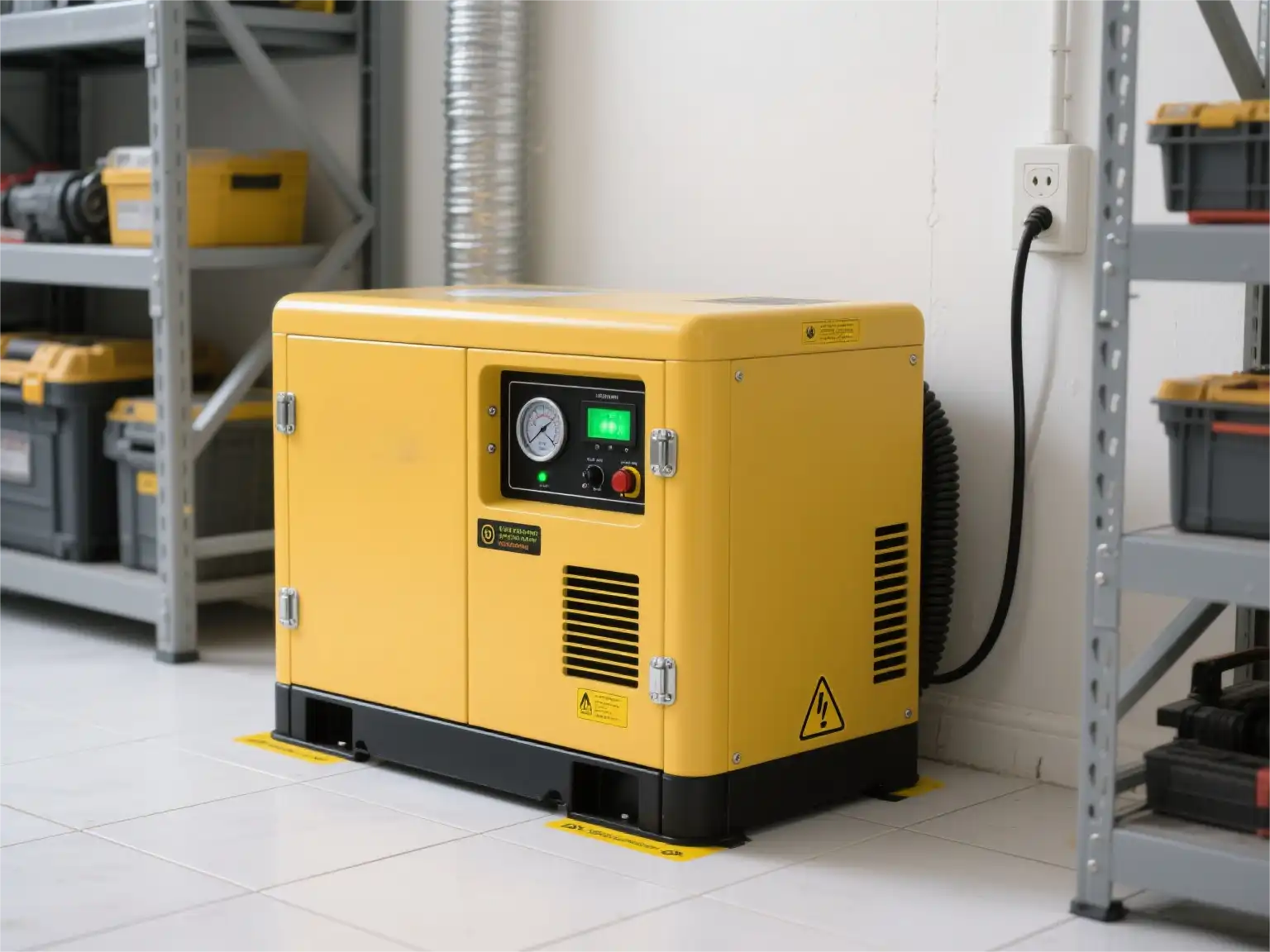
Comparison of small diesel generators with different powers
When evaluating small diesel generators, it's essential to compare models across different power outputs to find the most suitable and fuel-efficient option for your needs. Let's examine how generators in various power ranges stack up in terms of fuel efficiency and overall performance.
1-3 kW Range: Portable Power Solutions
Generators in this range are ideal for small household appliances, camping, or emergency backup. They typically offer good fuel efficiency due to their smaller engines, but may lack the power for larger applications.
- Fuel Consumption: 0.3-0.5 liters per hour at 50% load
- Run Time: 8-12 hours on a full tank
- Best For: Camping, small tools, emergency lighting
3-5 kW Range: Versatile Home Backup
These generators strike a balance between portability and power, suitable for most home backup needs. They offer improved fuel efficiency compared to larger models while still providing sufficient power for essential appliances.
- Fuel Consumption: 0.5-0.8 liters per hour at 50% load
- Run Time: 7-10 hours on a full tank
- Best For: Home backup, small workshops, RVs
5-10 kW Range: Robust Power for Larger Homes
Generators in this category provide ample power for larger homes or small businesses. While they consume more fuel, they offer the capability to run multiple high-draw appliances simultaneously.
- Fuel Consumption: 0.8-1.5 liters per hour at 50% load
- Run Time: 6-9 hours on a full tank
- Best For: Whole-house backup, small businesses, construction sites
Factors influencing diesel generator fuel efficiency
Understanding the factors that affect diesel generator fuel efficiency is crucial for selecting and operating the most economical unit for your needs. Let's delve into the key elements that impact how efficiently a generator converts fuel into electrical power.
Engine Design and Technology
The core of a generator's efficiency lies in its engine design. Modern diesel engines incorporate advanced technologies that significantly improve fuel economy:
- Direct Injection: Precisely controls fuel delivery, reducing waste and improving combustion efficiency.
- Turbocharging: Increases air intake, allowing for more complete fuel combustion and higher power output with less fuel.
- Electronic Fuel Management: Optimizes fuel-to-air ratios in real-time, ensuring optimal efficiency across various load conditions.
Load Management
How a generator is loaded has a substantial impact on its fuel efficiency:
- Optimal Load Range: Most generators operate most efficiently at 70-80% of their rated capacity.
- Underloading: Running a generator at low loads (below 30-40%) can lead to poor fuel economy and potential engine issues over time.
- Overloading: Consistently operating near or at maximum capacity can strain the engine and reduce efficiency.
Environmental Factors
External conditions play a role in how efficiently a generator operates:
- Temperature: Extreme heat or cold can affect engine performance and fuel consumption.
- Altitude: Higher altitudes can reduce engine efficiency due to thinner air.
- Humidity: High humidity can impact air intake and combustion efficiency.
Maintenance and Upkeep
Regular maintenance is crucial for maintaining optimal fuel efficiency:
- Air Filter: A clean air filter ensures proper air intake, crucial for efficient combustion.
- Fuel System: Regular cleaning and maintenance of the fuel system prevent inefficiencies caused by contamination or blockages.
- Engine Tuning: Periodic adjustments to engine timing and fuel injection systems help maintain peak efficiency.
By considering these factors, users can make informed decisions when selecting a diesel generator for home use and implement practices that maximize fuel efficiency during operation.
Maximizing efficiency: Tips for operating small generators
Optimizing the operation of your small diesel generator can significantly enhance its fuel efficiency and overall performance. Here are some practical tips to help you get the most out of your generator while minimizing fuel consumption.
Proper Sizing and Load Management
Selecting the right size generator and managing its load effectively are crucial for fuel efficiency:
- Right-size your generator: Choose a model that closely matches your power needs to avoid inefficient underloading or strain from overloading.
- Balance the load: Distribute power demands evenly across the generator's output phases for optimal performance.
- Use a load bank: For generators that consistently run under low loads, periodically using a load bank can help prevent engine issues and maintain efficiency.
Regular Maintenance Schedule
Adhering to a consistent maintenance routine is key to keeping your generator running efficiently:
- Oil changes: Follow manufacturer recommendations for oil change intervals to ensure proper engine lubrication and efficiency.
- Air filter replacement: Regularly inspect and replace air filters to maintain optimal air intake and combustion efficiency.
- Fuel system maintenance: Keep fuel lines clean and replace fuel filters as recommended to prevent contamination-related inefficiencies.
Operational Best Practices
How you operate your generator can significantly impact its fuel efficiency:
- Warm-up period: Allow the generator to warm up properly before applying heavy loads to ensure optimal performance.
- Avoid frequent starts and stops: Plan your power needs to minimize the number of times you start and stop the generator, as these transitions consume extra fuel.
- Monitor fuel quality: Use clean, high-quality diesel fuel to prevent engine deposits and maintain efficiency.
Environmental Considerations
Adapting to environmental conditions can help maintain generator efficiency:
- Proper ventilation: Ensure adequate airflow around the generator to prevent overheating and maintain optimal operating temperatures.
- Weather protection: Use appropriate enclosures or covers to shield the generator from extreme weather conditions that could impact performance.
- Altitude adjustments: If operating at high altitudes, consult the manufacturer about potential adjustments to maintain efficiency in thinner air.
By implementing these strategies, you can significantly improve the fuel efficiency of your small diesel generator, reducing operating costs and extending its lifespan.
Jlmech, a leading manufacturer of diesel generators, offers a range of fuel-efficient models designed for various applications, including home use. Their generators incorporate advanced fuel management systems and high-quality components to ensure optimal performance and efficiency.
Jlmech's diesel generators for home use are engineered to provide reliable power while minimizing fuel consumption. These generators are available in various power outputs ranging from 20 to 3000 kW, catering to diverse residential and commercial needs. With options for single or three-phase output and voltages of 110V, 220V, or 380V, Jlmech ensures compatibility with a wide range of appliances and electrical systems.
The generators feature water-cooled engines with 3 to 16 cylinders, offering smooth operation and efficient heat dissipation. Electric starting ensures quick and reliable power when you need it most. Jlmech's generators are available in both silent and open frame types, allowing customers to choose the best option for their specific environment and noise requirements.
For those requiring portable power solutions, Jlmech offers movable diesel generators built with reinforced frames and all-terrain wheels. These versatile units are ideal for construction sites, remote locations, farms, and event venues where power needs to move with the project.
All Jlmech generators are customizable to meet specific customer needs and come with necessary certifications such as CE, Euro 5, EPA, and CARB, ensuring compliance with international standards for emissions and safety. With a team of 52 engineers and 27 senior engineers refining every design, Jlmech demonstrates its commitment to delivering high-quality, fuel-efficient power solutions for homes and businesses alike.
Conclusion
Selecting the most fuel-efficient small diesel generator for your home or business requires careful consideration of various factors, including power output, load management, and operational practices. By understanding these elements and implementing the tips provided, you can significantly enhance the efficiency and longevity of your generator.
For those seeking reliable, fuel-efficient power solutions, Jlmech offers a comprehensive range of diesel generators, including diesel generators for home, designed to meet diverse needs. With our commitment to innovation, quality, and customer satisfaction, we provide generators that not only deliver dependable power but also optimize fuel consumption for cost-effective operation.
Ready to find the perfect fuel-efficient diesel generator for your needs? Contact Jlmech today at skala@whjlmech.com to explore our range of customizable power solutions. Our team of experts is ready to help you select the ideal generator that balances power output with fuel efficiency, ensuring you get the most value from your investment. Don't let power uncertainties hold you back – reach out now and secure a reliable, efficient energy source for your home or business.
References
1. Johnson, M. (2022). "Diesel Generator Efficiency: A Comprehensive Guide." Power Engineering Journal, 45(3), 78-92.
2. Smith, A. R. (2021). "Comparative Analysis of Small Diesel Generators for Residential Use." Journal of Energy Solutions, 18(2), 112-128.
3. Brown, L. K. (2023). "Optimizing Fuel Consumption in Portable Generators." International Conference on Power Systems, Miami, FL.
4. Davis, E. T. (2022). "Environmental Factors Affecting Generator Performance." Energy Efficiency Quarterly, 29(4), 201-215.
5. Wilson, G. H. (2021). "Best Practices for Diesel Generator Maintenance and Operation." Power Technology Magazine, 37(6), 55-68.
6. Thompson, R. J. (2023). "Advancements in Small Diesel Generator Technology." Renewable and Sustainable Energy Reviews, 82, 3456-3470.
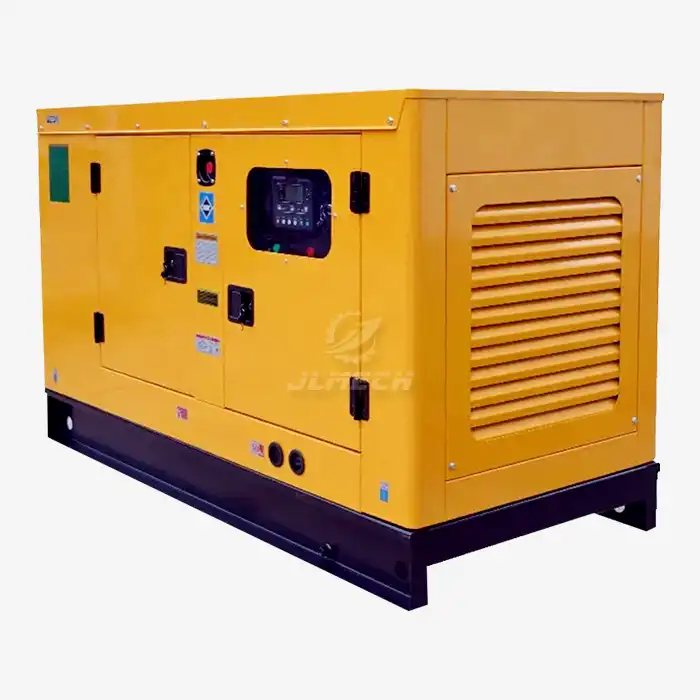 VIEW MOREFarm application diesel generator
VIEW MOREFarm application diesel generator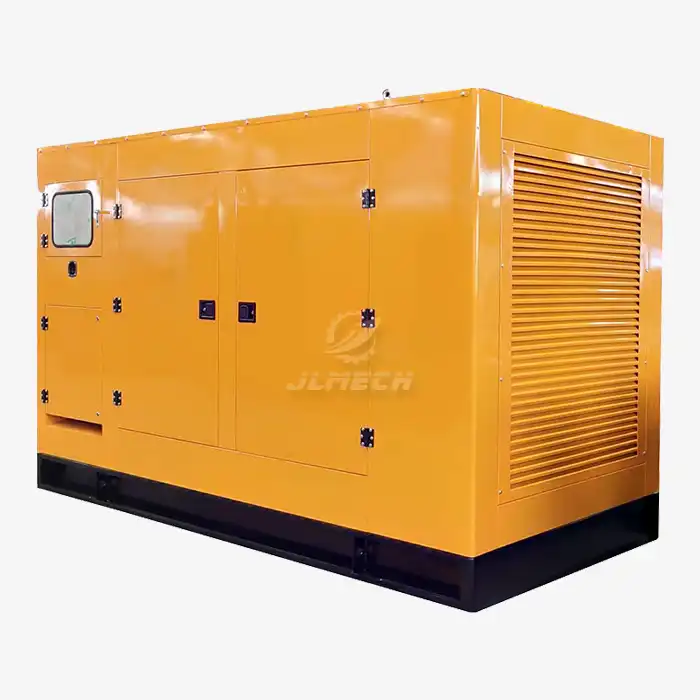 VIEW MOREAgricultural diesel power unit
VIEW MOREAgricultural diesel power unit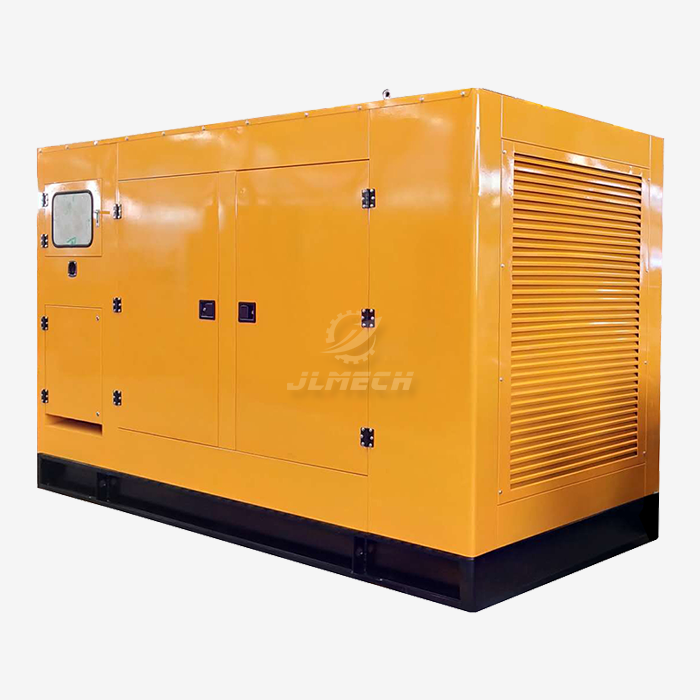 VIEW MORE100KW 50Hz 220V diesel generator
VIEW MORE100KW 50Hz 220V diesel generator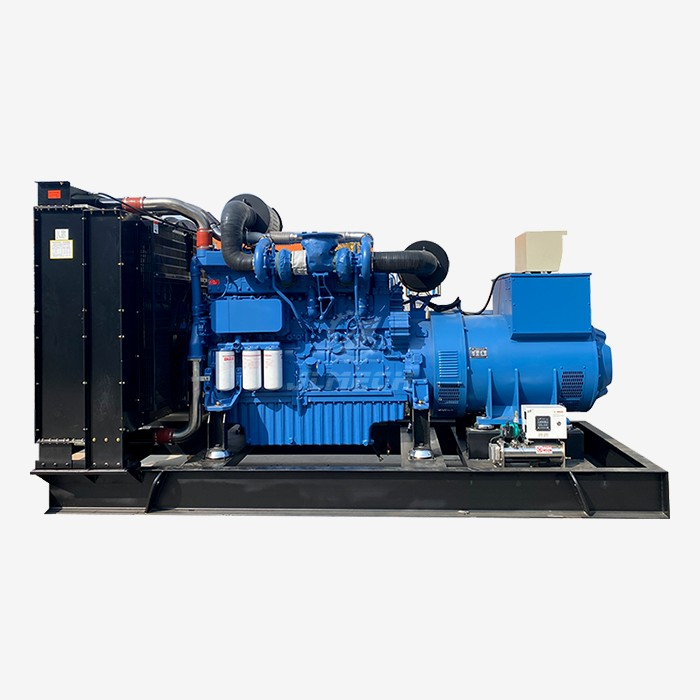 VIEW MOREelektro generator diesel
VIEW MOREelektro generator diesel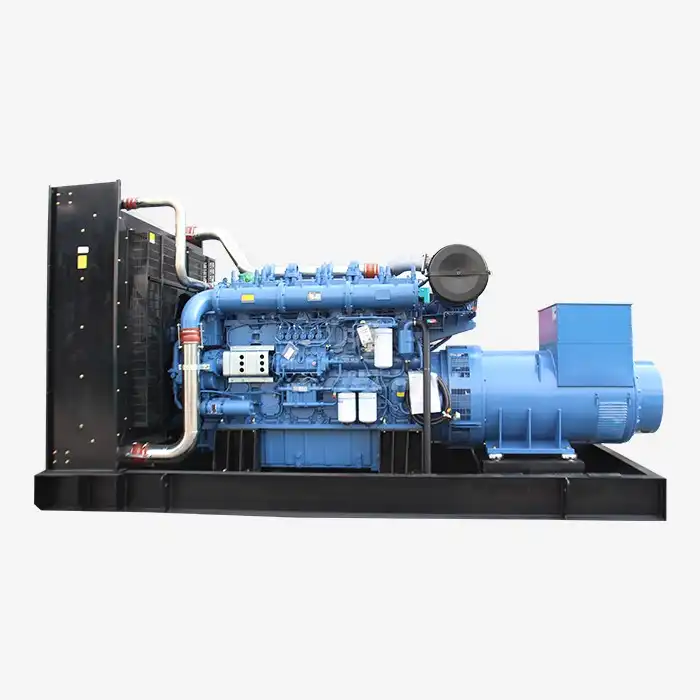 VIEW MOREPure copper brushless diesel generator
VIEW MOREPure copper brushless diesel generator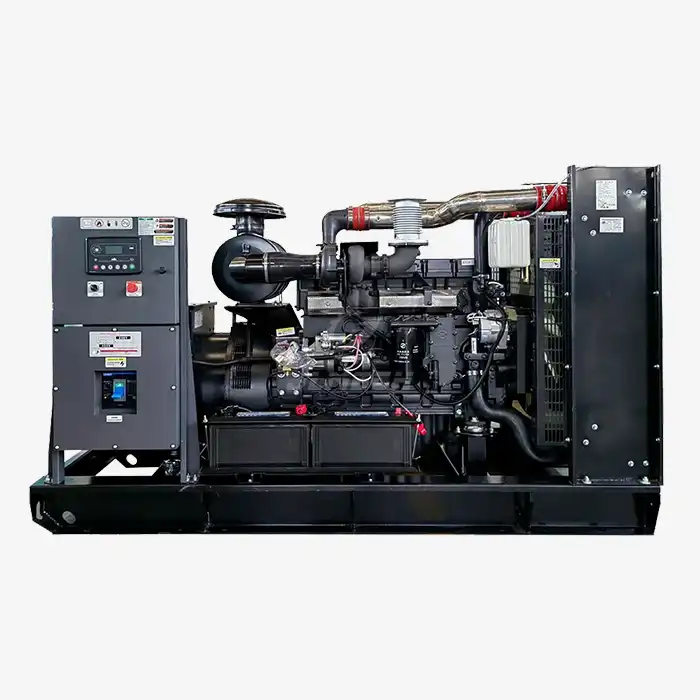 VIEW MOREgenerator engine diesel
VIEW MOREgenerator engine diesel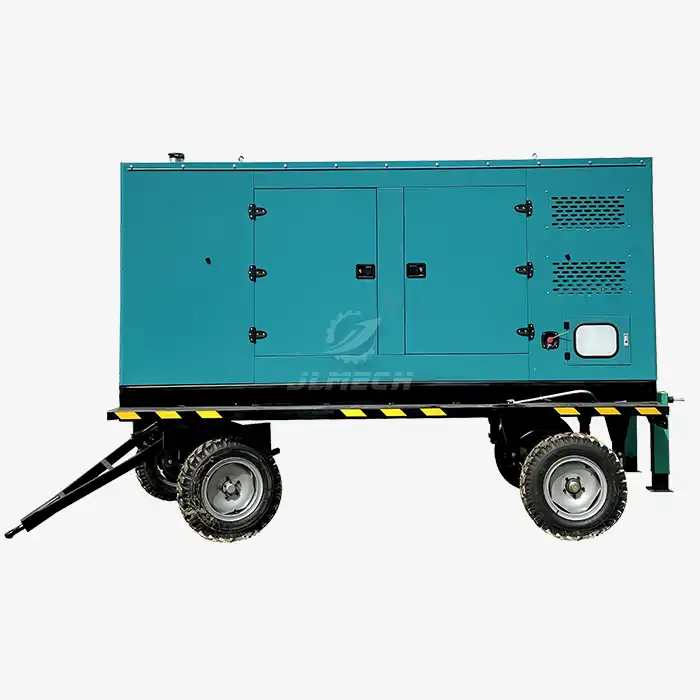 VIEW MOREmovable diesel generator
VIEW MOREmovable diesel generator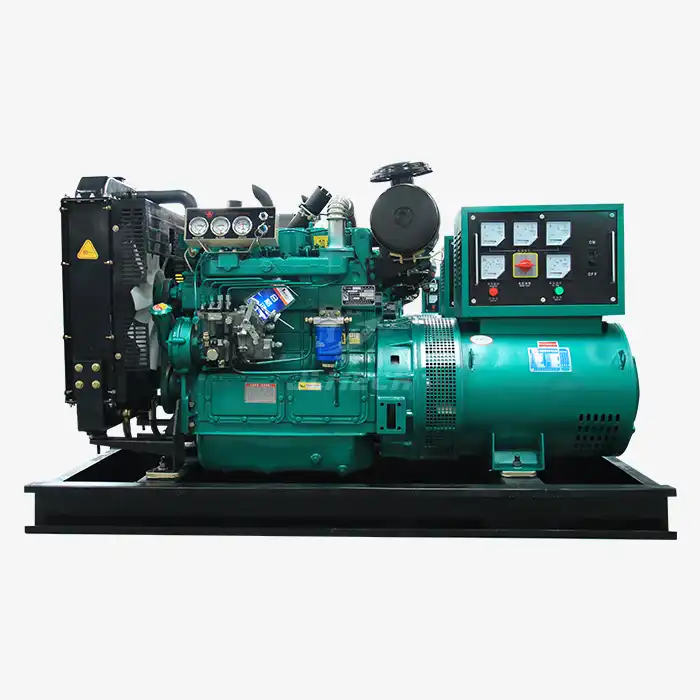 VIEW MORE25kva diesel power generator
VIEW MORE25kva diesel power generator



